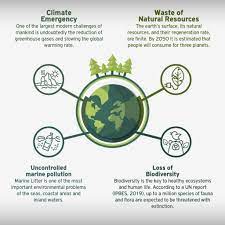Environmental Development: Nurturing a Sustainable Future
In today’s rapidly changing world, environmental development has become a crucial aspect of ensuring a sustainable future for generations to come. It involves the conscious efforts to protect and preserve our natural resources while promoting economic growth and social well-being.
One key element of environmental development is the implementation of eco-friendly practices in various sectors such as agriculture, industry, and transportation. This includes reducing carbon emissions, minimising waste generation, and promoting renewable energy sources to mitigate the impact of climate change.
Education plays a vital role in fostering environmental awareness and encouraging individuals to adopt sustainable lifestyles. By raising awareness about the importance of conservation and biodiversity, we empower communities to take action towards preserving our planet for future generations.
Collaboration between governments, businesses, non-profit organisations, and communities is essential for effective environmental development. Through partnerships and collective action, we can address complex environmental challenges such as deforestation, pollution, and loss of biodiversity.
Investing in green technologies and innovation is another key aspect of environmental development. By supporting research and development in sustainable practices, we can create new opportunities for green growth while reducing our ecological footprint.
In conclusion, environmental development is not just a goal but a collective responsibility that requires commitment from all stakeholders. By prioritising sustainability in our policies and actions, we can pave the way for a greener, healthier planet for future generations to thrive.
Five Essential Tips for Promoting Sustainable Environmental Development
- Reduce, reuse, and recycle to minimise waste and conserve resources.
- Choose sustainable and eco-friendly products to support a greener future.
- Conserve energy by turning off lights and electronics when not in use.
- Plant trees and create green spaces to improve air quality and biodiversity.
- Educate yourself and others about environmental issues to promote awareness and action.
Reduce, reuse, and recycle to minimise waste and conserve resources.
By following the principle of “reduce, reuse, and recycle,” individuals and organisations can significantly contribute to environmental development by minimising waste generation and conserving valuable resources. By reducing consumption, reusing items whenever possible, and recycling materials, we can lessen the burden on landfills, decrease energy consumption, and promote a more sustainable way of living. This simple yet powerful tip not only helps in preserving the environment but also fosters a mindset of responsible resource management for a greener future.
Choose sustainable and eco-friendly products to support a greener future.
Choosing sustainable and eco-friendly products is a simple yet impactful way to contribute to a greener future. By opting for items that are produced using environmentally friendly practices and materials, we can reduce our carbon footprint and promote sustainable consumption. Supporting businesses that prioritise sustainability not only helps preserve natural resources but also encourages the adoption of greener practices across industries. Making conscious choices about the products we buy empowers us to be part of the solution in creating a more sustainable and environmentally conscious world for generations to come.
Conserve energy by turning off lights and electronics when not in use.
Conserving energy by turning off lights and electronics when not in use is a simple yet effective way to contribute to environmental development. By being mindful of our energy consumption habits, we can reduce unnecessary electricity usage and lower our carbon footprint. This small action not only helps in saving energy and reducing utility bills but also plays a significant role in promoting sustainability and combating climate change. Making it a habit to switch off lights and unplug electronics when they are not needed is a proactive step towards creating a more eco-friendly and energy-efficient environment for present and future generations.
Plant trees and create green spaces to improve air quality and biodiversity.
Planting trees and creating green spaces are effective strategies for enhancing air quality and promoting biodiversity. Trees act as natural air purifiers by absorbing carbon dioxide and releasing oxygen, thereby reducing pollution and improving overall air quality. Additionally, green spaces provide habitats for a variety of plant and animal species, contributing to increased biodiversity and ecological balance. By incorporating more trees and green areas into urban environments, we can create healthier ecosystems, mitigate the effects of climate change, and enhance the well-being of both humans and wildlife.
Educate yourself and others about environmental issues to promote awareness and action.
To further environmental development, it is essential to educate oneself and others about pressing environmental issues. By increasing awareness and knowledge about topics such as climate change, pollution, and biodiversity loss, individuals can be empowered to take meaningful action towards sustainability. Through education and advocacy, we can inspire positive change and collective efforts to protect our planet for future generations.

